What happens when America's Soviet-style food banks embrace free-market economics?
Spoiler: They thrive
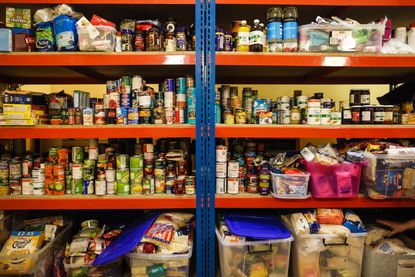

If you were in charge of a massive, centrally planned hunger-relief charity, would you ask a free-market economist for advice? Probably not. And yet, this is exactly what Feeding America, the largest network of food banks in the United States, did in 2005.
In fact, they asked not one but four professors at the University of Chicago Booth Business School to help them figure out the best way to allocate the more than 60,000 tons of donated food that Feeding America receives each year.
Tens of millions of Americans rely on Feeding America, which has built up an impressive number of donors over the last few decades. Supermarkets usually donate food directly to their local food bank. But large food manufacturers often donate to Feeding America headquarters, which then allocates this food across its nationwide network of food banks. Sadly, the need for this service is only increasing, with demand for food banks going through the roof since the financial crisis. In 2007, 26 million Americans were on food stamps. Last year there were more than 46 million, an increase of almost 80 percent.
Subscribe to The Week
Escape your echo chamber. Get the facts behind the news, plus analysis from multiple perspectives.

Sign up for The Week's Free Newsletters
From our morning news briefing to a weekly Good News Newsletter, get the best of The Week delivered directly to your inbox.
From our morning news briefing to a weekly Good News Newsletter, get the best of The Week delivered directly to your inbox.
Before 2005, Feeding America allocated food centrally, and according to its rather subjective perception of what food banks needed. Headquarters would call up the food banks in a priority order and offer them a truckload of food. Bizarrely, all food was treated more or less equally, irrespective of its nutritional content. A pound of chicken was the same as a pound of french fries. If the food bank accepted the load, it paid the transportation costs and had the truck sent to them. If the food bank refused, Feeding America would judge this food bank as having lower need and push it down the priority list. Unsurprisingly, food banks went out of their way to avoid refusing food loads — even if they were already stocked with that particular food.
This Soviet-style system was hugely inefficient. Some urban food banks had great access to local food donations and often ended up with a surplus of food. A lot of food rotted in places where it was not needed, while many shelves in other food banks stood empty. Feeding America simply knew too little about what their food banks needed on a given day.
In 2005, the Chicago team helped design an auction-like system to allocate the food, and have been tweaking the system for a decade. Today, it runs as smoothly as eBay.
Every day, each food bank is allocated a pot of fiat currency called "shares." Food banks in areas with bigger populations and more poverty receive larger numbers of shares. Twice a day, they can use their shares to bid online on any of the 30 to 40 truckloads of food that were donated directly to Feeding America. The winners of the auction pay for the truckloads with their shares. Then, all the shares spent on a particular day are reallocated back to food banks at midnight. That means that food banks that did not spend their shares on a particular day would end up with more shares and thus a greater ability to bid the next day. In this way, the system has built-in fairness: If a large food bank could afford to spend a fortune on a truck of frozen chicken, its shares would show up on the balance of smaller food banks the next day. Moreover, neighboring food banks can now team up to bid jointly to reduce their transport costs.
Initially, there was plenty of resistance. As one food bank director told Canice Prendergast, an economist advising Feeding America, "I am a socialist. That's why I run a food bank. I don't believe in markets. I'm not saying I won't listen, but I am against this." But the Chicago economists managed to design a market that worked even for participants who did not believe in it. Within half a year of the auction system being introduced, 97 percent of food banks won at least one load, and the amount of food allocated from Feeding America's headquarters rose by over 35 percent, to the delight of volunteers and donors.
There were several obstacles along the way. Smaller food banks bid much less frequently on certain truck loads, so they often lack experience in computing reasonable bids. The economists helped them by ensuring there was no price inflation within the system, and by providing access to historical prices. They also gave food banks the option of delegating bidding to a representative of Feeding America, but, surprisingly, this option still hasn't been used. Finally, food banks that face an unexpected surge for their services can access a line of credit denominated in shares.
It would not be surprising if more charities and NGOs turned to (Chicago) economists to help them fight poverty and inequality with novel market designs in the future. Let's just hope economists do not let them down: Even though all free markets are alike, every designed market is designed in its own way.
Create an account with the same email registered to your subscription to unlock access.
Sign up for Today's Best Articles in your inbox
A free daily email with the biggest news stories of the day – and the best features from TheWeek.com
-
 The hunt for Planet Nine
The hunt for Planet NineUnder The Radar Researchers seeking the elusive Earth-like planet beyond Neptune are narrowing down their search
By Chas Newkey-Burden, The Week UK Published
-
 Magazine interactive crossword - April 26, 2024
Magazine interactive crossword - April 26, 2024Puzzles and Quizzes Issue - April 26, 2024
By The Week US Published
-
 Magazine solutions - April 26, 2024
Magazine solutions - April 26, 2024Puzzles and Quizzes Issue - April 26, 2024
By The Week US Published
-
 The pros and cons of noncompete agreements
The pros and cons of noncompete agreementsThe Explainer The FTC wants to ban companies from binding their employees with noncompete agreements. Who would this benefit, and who would it hurt?
By Peter Weber Published
-
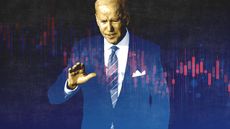 What experts are saying about the economy's surprise contraction
What experts are saying about the economy's surprise contractionThe Explainer The sharpest opinions on the debate from around the web
By Brendan Morrow Published
-
 The death of cities was greatly exaggerated
The death of cities was greatly exaggeratedThe Explainer Why the pandemic predictions about urban flight were wrong
By David Faris Published
-
 The housing crisis is here
The housing crisis is hereThe Explainer As the pandemic takes its toll, renters face eviction even as buyers are bidding higher
By The Week Staff Published
-
 How to be an ally to marginalized coworkers
How to be an ally to marginalized coworkersThe Explainer Show up for your colleagues by showing that you see them and their struggles
By Tonya Russell Published
-
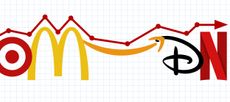 What the stock market knows
What the stock market knowsThe Explainer Publicly traded companies are going to wallop small businesses
By Noah Millman Published
-
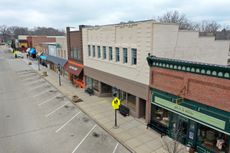 Can the government save small businesses?
Can the government save small businesses?The Explainer Many are fighting for a fair share of the coronavirus rescue package
By The Week Staff Published
-
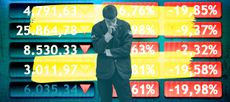 How the oil crash could turn into a much bigger economic shock
How the oil crash could turn into a much bigger economic shockThe Explainer This could be a huge problem for the entire economy
By Jeff Spross Published